‘Leave her alone!’
Ruth wrenches herself free and swims towards the noises, the waves suddenly seem incredibly high. Now, other hands are pulling her up onto the sea wall. Tatjana is next to her, putting her arm round her. Craig is still in the water but, as she watches, people are reaching down to him too. A helicopter circles above them, churning the bay into a whirlpool. Now Judy is there, putting handcuffs onto Craig.
‘He tried to kill me,’ says Ruth.
‘I know,’ says Judy. ‘I saw.’
‘You don’t know the half of it.’
The police launch appears beside the wall, bobbing in the choppy water. Judy climbs in with Craig, and Tatjana and Ruth follow, falling clumsily into its bows. Now they are heading back across the cove. People wrap foil blankets round them and try to give them hot drinks but Ruth suddenly feels exhilarated, invincible. She starts to laugh. Judy looks at her in concern.
‘It’s okay, Ruth. You’re safe now.’
But Ruth can’t stop laughing, it’s all mixed up – joy, fear, exhaustion, and an overwhelming sense of relief that she isn’t going to die after all. Not this time.
Tatjana puts her hand on Ruth’s arm.
‘Ruth. I’m sorry about earlier.’
‘That’s okay. You saved my life.’
‘You saved yourself.’
‘How did you get here anyhow?’
‘You rang me.’
‘I just pressed random buttons,’ says Ruth, ‘you must have been the last number I called.’
‘Well, I thought you sounded like you needed help.’
‘Thank you.’
‘You should have rung the police,’ says Judy, slightly reprovingly. She is sitting beside Craig who is huddled in his blanket, staring into space. Hard to imagine that a few minutes ago he seemed inhuman, a monster possessed of terrible powers.
‘I’m used to taking the law into my own hands,’ says Tatjana.
She looks at Ruth and smiles.

When Nelson opens his eyes he is being carried in some sort of hammock. The sky unfurls at a tremendous speed, full of seagulls, black against white. Now he is surrounded by people and light, noises like computer games, the sound of an engine, a siren, fading away into the distance.
‘Jesus, boss. I thought you were a goner.’
Nelson focuses his eyes on Clough’s face. His sergeant is dripping wet, soot-stained and, unaccountably, smiling.
Another face swims into view – kindly, middle-aged, unknown.
‘Just lie back, son. Don’t overdo it.’
‘Where am I?’
‘In an ambulance. On the way to hospital. Don’t worry, you’ll be fine. We just need to check you over.’
‘Where’s Cathbad? I thought I heard his voice.’
‘He’s not here, boss,’ says Clough. ‘It was just me and Johnson. She went for help and I saw you fall into the water. I had a hell of a time getting you out.’
‘This young man saved your life,’ says the ambulance man. ‘He pulled you out of the sea. By the time we got there, he’d already given you the kiss of life.’
Nelson closes his eyes again. ‘Just kill me now,’ he says. It was the end of summer. There were crops in some of the fields but no-one to do the harvesting. Some of the volunteers tried to organise teams to cut the hay but no-one really knew what they were doing and, besides, most of the farms had been burnt to the ground.
The hotel became uncomfortable as the weather got colder. At night the wind whistled through the broken glass and Ruth shivered in her thin sleeping bag. She knew she would have to go home soon; the academic year was starting and, in a way, she wanted to go back, to sleep in a proper bed, to watch television, to eat something other than rice and beans. But a far stronger part of her wanted to stay. How can they leave when there are still bodies piled high, waiting to be identified? Every week brought news of a new mass grave. Erik was everywhere, riding in an open truck like Che Guevara, a scarf over his mouth to keep out the dust, spurring the volunteers on, arguing with the officials, handing out mugs of stolen wine to his weary troops, praising, encouraging, sympathising. He always had a special word for each of them. When he saw Ruth, his ice-blue eyes would soften and he’d say, ‘What would I do without my Ruthie?’ And Ruth, cold, exhausted, sickened by the suffering that she saw every day, would glow in the warmth of his approval.
Tatjana grew very quiet as summer turned to autumn. Sometimes Ruth thought that she had given up hope of finding Jacob. But she still cried every night and, when people came from the south, she still questioned them. Only now it seemed as if she did not expect to get any answers.
In late September a small group, including Ruth and Tatjana, travelled to a town near Mostar, the capital of the new Herzegovina. There were rumours of a grave near a large refugee camp. Children from the camp had apparently been found playing with human bones.
It was Ruth’s first sight of one of these notorious camps, and as their truck moved slowly though the line of tents, children running excitedly after them, she was relieved that it wasn’t as awful as she’d feared. There was order, a Red Cross van handing out food, even some attempts at normal life: a group of boys playing football, women hanging out clothes, children playing in a stream.
Next to her, Tatjana was rigid with tension. When one of the children jumped on the side of the truck, she screamed.
‘What’s the matter?’ asked Ruth.
‘Nothing.’
On a hillside to the north of the camp they found their first bones. Heavy rainfall had dislodged the earth and human bones were indeed lying in the open and even floating in the stream that bordered the camp. For three days the archaeologists sorted and catalogued and attempted to identify. This was farmland and there were animal bones mixed in with the human, but all the evidence pointed to a massacre – men, women and children, their bodies thrown into a shallow pit.
As the days went by Tatjana became more and more withdrawn. She worked efficiently enough but in the evenings she sat on her own, wrapped in her coat, apparently deep in thought.
Then, on the fourth day, Ivan, their driver, came bursting into their camp with the news that a group of rebel Serbs were in the area. They had apparently burnt the church and were on their way to the refugee camp. As he spoke they watched the smoke rise up above the trees, a dark cloud in the evening sky.
Ruth remembers that she had never felt more frightened in her life. She had lived for twenty-five years without ever once experiencing physical danger. She wasn’t really one for extreme sports; the nearest she had come to death was probably eating a dodgy kebab from Bilal’s All Night Burger Stall. And now, a band of deadly ruffians was on its way – people who would not baulk at the murder of civilians. She remembers that she had actually been sick, dry-retching at the back of the tents, while Erik and the others packed their gear into the truck.
Erik had been calmness itself. Even now Ruth feels a twinge of vicarious pride as she remembers how Erik had insisted on going down to the refugee camp. ‘Who knows, our presence there may save lives. We are connected to the International Aid Effort, after all. They can hardly kill us all in cold blood.’
Ivan had clutched his arm, his normally ruddy face white with terror.
‘You don’t understand, Professor Anderssen. It’s…’ And he said a Serbian name which meant nothing to Ruth.
But it obviously meant something to Tatjana. She stepped forward out of the shadows and started questioning Ivan in Bosnian. Ruth remembers that Ivan had grown more and more desperate as he confronted Tatjana. It was as though whatever he had seen in the burning village was not as terrifying as this small, dark-haired woman.
Читать дальше
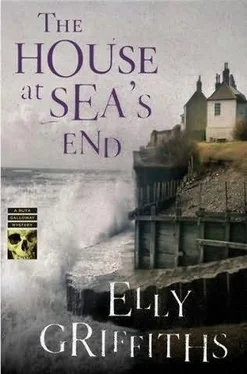


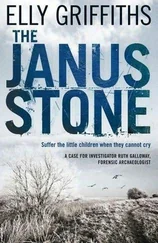
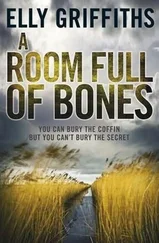

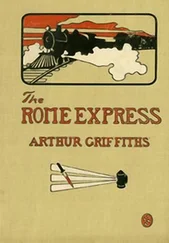


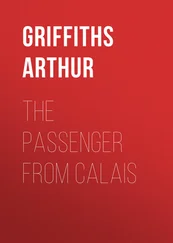



![Edward Ellis - Adrift on the Pacific - A Boys [sic] Story of the Sea and its Perils](/books/753342/edward-ellis-adrift-on-the-pacific-a-boys-sic-s-thumb.webp)